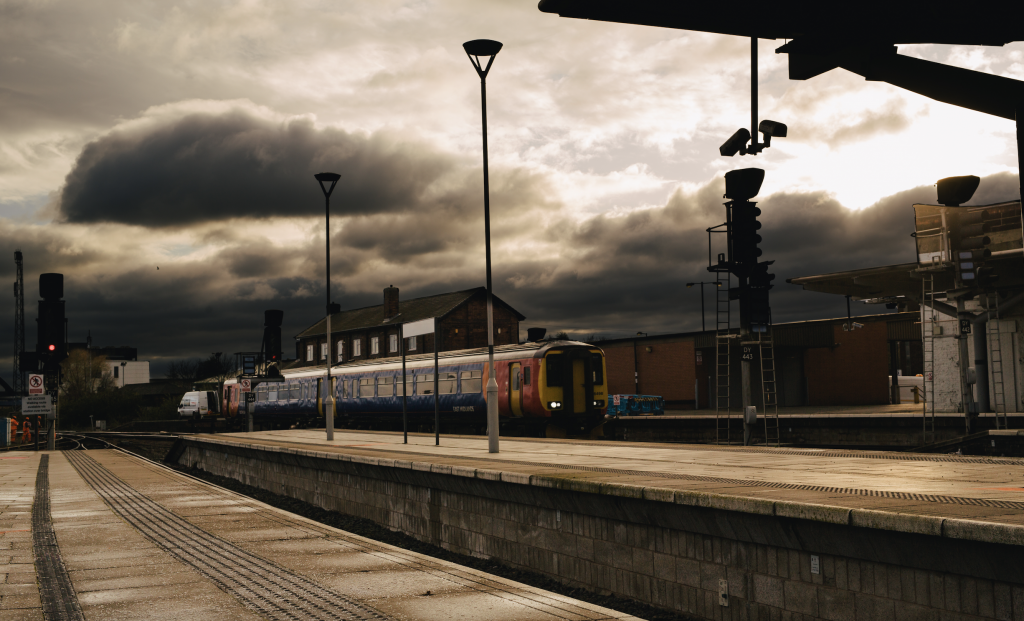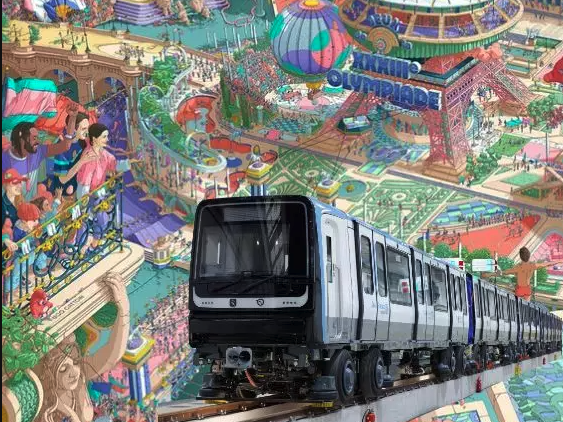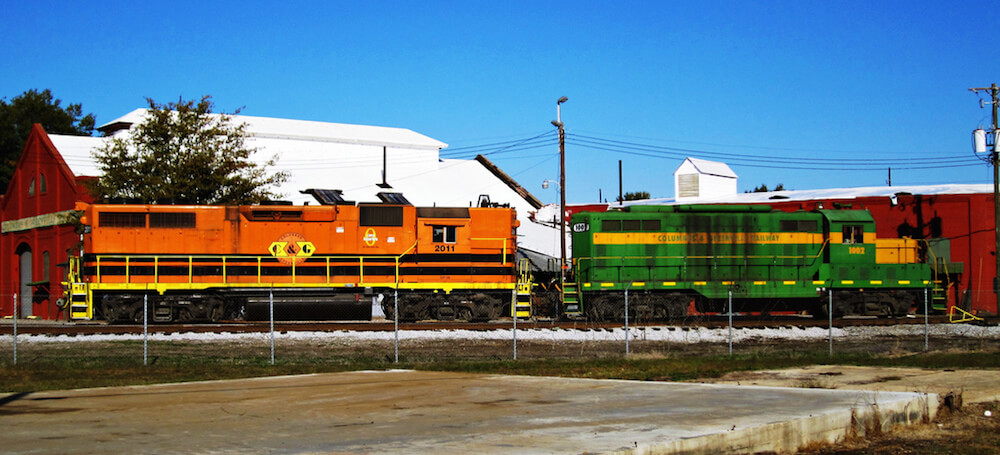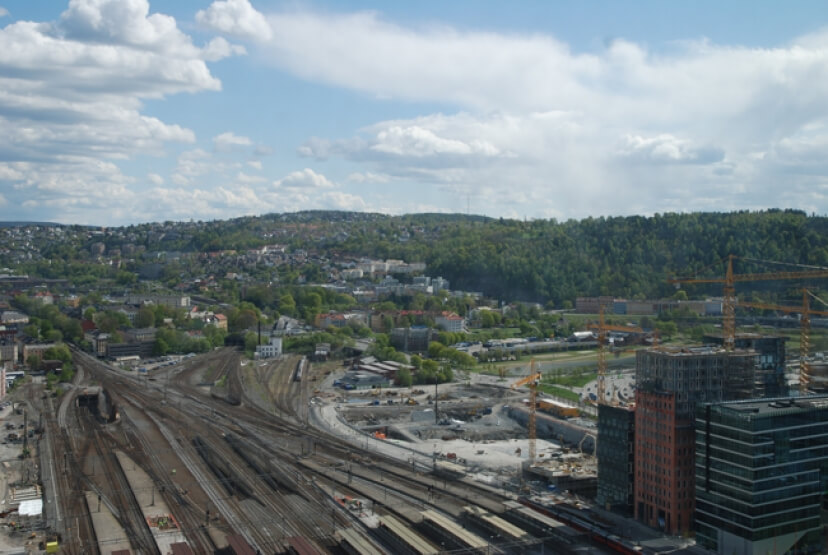The rail industry is a thriving sector to work in with endless career opportunities. Yet, there is a serious skills shortage that urgently needs to be addressed. EngineeringUK anticipates there is a shortfall of between 37,000 to 59,000 across core engineering roles, despite there being an annual demand of 124,000. It’s crucial the rail industry plugs the widening STEM (science, technology, engineering and maths) learning skills gap if it is to meet the transportation needs of the future.
The rail landscape is undoubtedly ever-changing, but now it’s undergoing a profound digital transformation, both in terms of the digitalisation of operations and the roll-out of cutting-edge technology on trains. This digital revolution is creating a working environment where rail operators need to be much more agile, reactive and technologically adept than ever before.

The nature of these changes means that STEM skills are all the more important; the future workforce will require an even broader variety of skills to meet the rapidly increasing demands of the modern railway. But we’re up against the clock as the skills shortage is time-critical. It’s vital the rail sector responds now by working together to inspire young people to pursue careers in STEM fields.
By the same token, the rail industry is still facing a lack of diversity and gender imbalance. If businesses keep hiring from the same pool, they won’t be able to tap into a wider range of talent. The industry must encourage more females and other underrepresented groups to study STEM subjects if it is to access a greater range of expertise.
3Squared are well connected to the STEM industry. STEM skills are absolutely pivotal to developing our products and services, so we’re especially passionate about helping young people to understand the realities and needs of the STEM workforce.
We run internships programmes, host talks at colleges and universities, and we strive to promote an inclusive and diverse workplace. We spoke to our HR manager Cherry Limb to get her insights on STEM and why it’s vital the rail industry advocates this interdisciplinary learning approach to the next generation of workers.
Why is it crucial to support STEM learning to attract young railway talent of the future?
A STEM education encourages thinkers and innovators, and these are exactly the type of candidates we need to attract in order to support our railways of the future.
Science, technology, engineering and mathematics are all around us in everyday life and underpin manufacturing, research, healthcare, transportation and everything else we all use. It’s easy to take for granted how all those things got there; everything ‘non-natural’ in the world has been researched, designed, planned and developed. Often this is by individuals skilled and passionate about STEM subjects, and that in itself is pretty powerful.
Science encourages research and analysis. Technology-savvy people are at a great advantage to make changes and improve current situations. Engineering is about building and producing, and mathematics affects everyday life such as making decisions based on comparative information etc. All of these kinds of skills are vital for the railway, and it’s therefore so important that we encourage the younger generation to uptake STEM skills.
Why is there a gap in STEM skills needed for the railway?
Possibly the lack of role models. Many children idolise high-profile men and women in the sport or music industry, for example, but more work could be done to promote the accomplishments of engineers or scientists etc. I think STEM needs some more positive PR and lessons in the classroom to promote people who have changed our lives for the better through their studies or work.
What issues arise when encouraging young people to pursue a career in rail?
The industry is often victim to stereotyping, and this can limit the diversity of applications that come in. This, in turn, can foster a culture that’s not inclusive, and where certain people aren’t able to thrive. STEM education should be presented through hands-on and relevant real-world learning experiences. It should be engaging and fun. Unfortunately, some of the STEM subjects aren’t mandatory after a certain age, and even then, are delivered with limited appeal. I believe some academic subjects such as mathematics have become too far removed from how they might be used in the workforce. There may also be a lingering stigma that certain subjects are “boring” or are only enjoyed by certain types of people, but this is simply not the case.
What challenges do the younger generation face in the rail industry today?
One challenge is perhaps driving and embracing the changes and benefits technology can bring. Previously, the industry had to work with processes, methods and practices that were quite manual, and these hadn’t been able to change much as the technology wasn’t there at the time. As new generations who have grown up with more technology than ever before enter the industry, they really do have the opportunity to harness the power of digital to develop better efficiencies for the railway.
What does 3Squared do to support STEM learning?
We do talks at local colleges and universities. Our aim this year is to widen our reach and attract a more diverse STEM audience in terms of gender, socioeconomic status, ethnicity, educational background, physical ability etc. We want to show that there is a job for everyone and you don’t have to look a certain way, have had a specific educational background, or belong to a school in an affluent area – you too can contribute to the industry, whether that’s directly in rail or in digital.
What stereotypes does the rail industry face and what can be done to turn these around?
Both the rail and technology industries are known for being male-dominated and underrepresented from the BAME community. This is possibly viewed as a ceiling for people from lower educational backgrounds and change is frustratingly slow. I think we need to tackle it from two ends: hiring and retention – we need to get new people in through the door and then work hard to improve their experience in the workplace once they’re in. In order to do this successfully, the industry must reconsider their hiring approaches. We need to remove any potential blockers for applicants, educate hiring managers in cultural intelligence, emotional intelligence and unconscious bias, extend our reach, think about hiring candidates that aren’t the ‘norm’ and invest in the next generation.
I think there also needs to be inclusion initiatives in workplaces and increased staff awareness. Companies need to hold up a mirror and be honest with themselves and possibly have some uncomfortable conversations. Are they doing things well and how deep do their values actually go?
It’s one thing to have slogans and pay lip service, but it’s another thing to actually stand by your values and put those into action. Ideas and feedback need to come from those underrepresented groups – it’s not necessarily best for HR or a senior management team to evaluate how well they’re doing as staff on the ground could feel completely differently. More could and should be done in rail over the next weeks, months and years.
This article was originally published by 3Squared.




